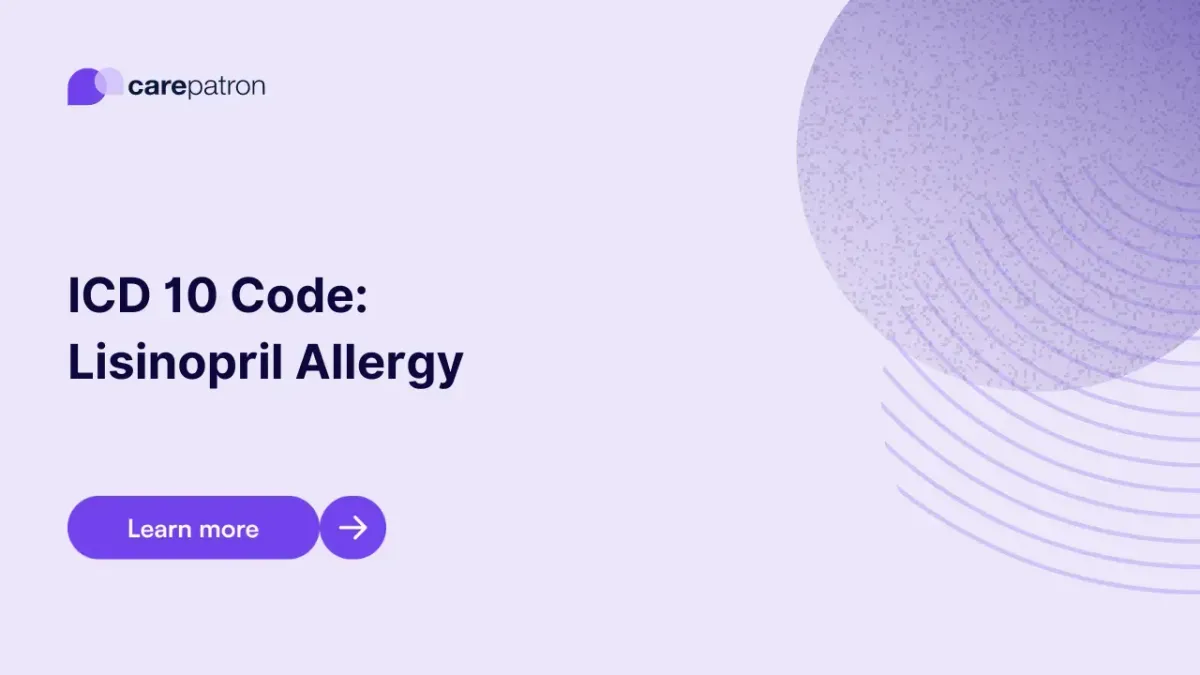
Lisinopril Allergy ICD-10-CM Codes | 2023
Discover the specific ICD-10 codes for Lisinopril allergy. Navigate accurate documentation and categorization of allergic reactions to this ACE inhibitor.
Use Code
Commonly asked questions
Use it when a patient presents symptoms of an allergic reaction and has a known history of taking Lisinopril.
Treatments may include antihistamines, corticosteroids, or epinephrine for severe reactions. Discontinuation of Lisinopril and alternative medication might also be considered.
It indicates the patient has a documented allergic reaction to Lisinopril, which is essential for treatment decisions and billing purposes.
EHR and practice management software
Get started for free
*No credit card required
Free
$0/usd
Unlimited clients
Telehealth
1GB of storage
Client portal text
Automated billing and online payments
